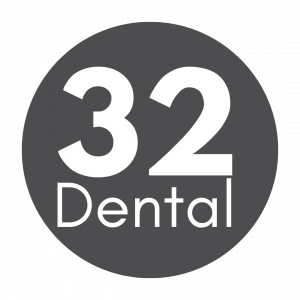Bleeding gums is a common issue that affects many people, yet few understand its causes and how to prevent it. If you’ve ever wondered why do my gums bleed when brushing or eating something hard, this article will help you understand the reasons behind it and find effective solutions to keep your gums healthy.

What causes bleeding gums?
Bleeding gums should not be ignored, as it is often a sign that something is wrong with your oral health. Several causes may be behind this problem. Below, we explain the main ones.
Most common causes of gum bleeding
- Periodontal Disease
Gingivitis is the most common cause of bleeding gums. This condition is caused by the buildup of bacterial plaque that inflames the gums, leading to bleeding, swelling, and bad breath. - Aggressive or Incorrect Brushing
Using a hard-bristled toothbrush or applying too much force or having a bad technique when brushing can damage the gums, causing them to bleed. - Nutritional Deficiencies
Lack of vitamin C or K in your diet can make your gums more sensitive and prone to bleeding. - Medications
Some drugs, such as anticoagulants, can increase the likelihood of gum bleeding. - Hormonal Changes
During pregnancy or menstruation, women may experience increased sensitivity in their gums, which can lead to bleeding.
“Bleeding gums, in most cases, are related to the accumulation of bacterial plaque. It is essential to maintain good dental hygiene to avoid periodontal diseases that compromise oral health.”
Dr. Rosa Sáenz Feijoo, orthodontist and dentist.
How to prevent bleeding gums?
Preventing bleeding gums is possible by adopting healthy habits and following some key recommendations to keep your gums in good shape.
Good oral hygiene practices
- Proper brushing: Make sure to brush your teeth at least twice a day with a soft-bristled toothbrush and fluoride toothpaste. Avoid applying too much pressure while brushing and make to avoid damaging your gums.
- Dental floss: Use dental floss daily to remove food debris and plaque between your teeth, areas where the toothbrush can’t reach.
- Waterpick: you can use this to reach in between the contact points, in addition or instead of the floss.
Healthy diet
- Ensure adequate vitamin intake: Vitamins C and K are essential for gum health. Include foods rich in these vitamins, such as citrus fruits, spinach, and kiwis.
- Avoid sugary foods: Excess sugar promotes the growth of bacteria in the mouth, which can trigger gum problems.
“Patients who present with bleeding gums should keep in mind that proper hygiene is the basis for preventing periodontal diseases, which are the main cause of this symptom.”
Dr. Sofia Callow Pueyo, dentist.
Dental treatments for bleeding gums
When gum bleeding becomes persistent, it is crucial to consult a dentist to determine the appropriate treatment. Oral health professionals may recommend various options based on the diagnosis.
Common treatments for gum bleeding
- Professional dental cleaning: Scaling and root planing may be necessary to remove plaque and tartar that accumulate beneath the gum line, especially if there are signs of gingivitis or periodontitis.
- Laser therapy: In some cases, laser treatments can help reduce inflammation and improve gum health.
- Antibiotics: If the cause of the bleeding is a bacterial infection, the dentist may prescribe antibiotics to eliminate harmful bacteria and promote gum recovery.
- Periodontal surgery: In more severe cases, such as advanced periodontitis, surgical procedures may be performed to restore gum health.
Preventing future issues
Staying on top of regular dental visits and following proper oral hygiene recommendations is crucial to prevent gum bleeding from recurring. Additionally, any changes in your oral health should be monitored with your periodontist , as bleeding may indicate more serious problems.

How to avoid gum bleeding at home?
In addition to dental treatments, several strategies can be incorporated into your daily routine to prevent gum bleeding. Here are some practical tips:
- Avoid excessive use of abrasive products: Choose a toothbrush with soft bristles and toothpastes that do not irritate the gums.
- Maintain a balanced diet: Eating healthily and avoiding processed sugars is essential for good oral health.
- Drink plenty of water: Staying hydrated helps produce saliva, which has natural antibacterial properties that protect your gums.
Maintaining good oral health and preventing gum bleeding is simpler than it seems if you follow a proper dental routine and visit your dentist regularly. If you experience persistent bleeding, don’t hesitate to consult a professional to receive the proper treatment.



